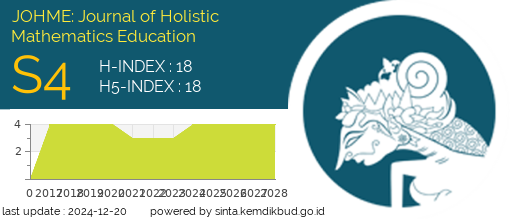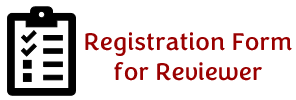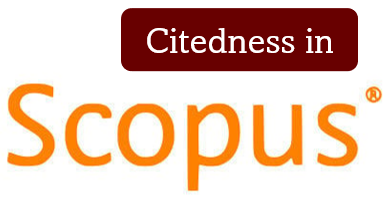Perbandingan Penerapan Pembelajaran Kooperatif Tipe Jigsaw Dengan TAI Terhadap Hasil Belajar Ranah Kognitif Kelas Viii [A Comparison of the Implementation of Cooperative Learning Methods Jigsaw and TAI on Cognitive Learning Outcomes of Grade 8 Students]
DOI:
https://doi.org/10.19166/johme.v1i1.717Trefwoorden:
Jigsaw, TAI, Team Assisted Individualization, cognitive learning outcomes, hasil belajar ranah kognitifSamenvatting
One of the factors affecting student learning outcomes is the learning process in the classroom. A teacher-centered learning process provides little learning experience for students. Student-centered learning needs to be developed so that students may experience meaningful learning and achieve good outcomes. The purpose of this study was to see the different cognitive learning outcomes caused by the implementation of two cooperative learning methods: jigsaw and TAI. The research method used is a quantitative quasi experiment with Nonequivalent Control Group Design. Student learning outcomes were measured by a post test. The difference in the learning outcomes were tested using a t-test. The research concludes that there is a significant difference of cognitive learning outcomes between students who are given cooperative learning jigsaw type (mean 43.14) and TAI (mean 47.85).
ABSTRAK BAHASA INDONESIA: Salah satu faktor yang memengaruhi hasil belajar siswa adalah proses pembelajaran di kelas. Pembelajaran yang berpusat kepada guru cenderung memberikan sedikit pengalaman belajar kepada siswa. Pembelajaran yang berpusat kepada siswa perlu dikembangkan agar siswa dapat mengalami pembelajaran yang bermakna dan mendapatkan hasil belajar yang baik. Tujuan penelitian ini untuk melihat perbedaan hasil belajar kognitif karena penerapan dua jenis pembelajaran kooperatif yaitu jigsaw dan TAI pada dua kelas yang berbeda. Metode penelitian yang digunakan adalah kuantitatif quasi eksperimen dengan desain penelitian Nonequivalent Control Group Design. Hasil belajar siswa diukur menggunakan nilai post-test. Perbedaan hasil belajar dianalisis menggunakan uji t. Hasil penelitian menunjukkan bahwa terdapat perbedaan signifikan (hasil belajar ranah kognitif antara siswa yang diberikan pembelajaran kooperatif tipe jigsaw (mean 43.14) dengan tipe TAI (mean 47.85).
Referenties
Badar, T. I. (2003). Mendesain model pembelajaran inovatif, progresif dan kontekstual. Jakarta, Indonesia: Prenadamedia Group.
Darmadi, H. (2011). Metode penelitian pendidikan. Bandung, Indonesia: Alfabeta.
Djamarah, S. B. (2011). Psikologi belajar. Jakarta, Indonesia: Rineka Cipta.
Harnanik. (2013). Pembelajaran kooperatif Jigsaw untuk meningkatkan hasil belajar IPA kelas IV SDN 03 Lempong Jenawi Karang-Anyar tahun pelajaran 2012/2013. Skripsi tidak diterbitkan. Surakarta, Indonesia: Perpustakaan Universitas Muhammadiyah Surakarta.
Knight, G. R. (2006). Filsafat & pendidikan. Tangerang, Indonesia: Universitas Pelita Harapan Press.
Purwanto. (2009). Evaluasi hasil belajar. Yogyakarta, Indonesia: Pustaka Belajar.
Rimba, D. and Hidayat, D. (2016). A comparison of STAD and drill strategy in increasing grade V students’ cognitive achievement on ratios. Polyglot: Jurnal Ilmiah. 12(1), 10-19. doi: http://dx.doi.org/10.19166/pji.v12i1.378
Slavin, R. E. (2010). Cooperative learning: Teori, riset dan praktik. Bandung, Indonesia: Nusa Media.
Smith, J. B. (2014). The good and beautiful community (komunitas yang baik dan indah). Surabaya, Indonesia: Literatur Perkantas Jawa Timur.
Sugiyono. (2013). Metode penelitian kuantitatif kualitatif dan R&D. Bandung, Indonesia: Alfabeta.
Van Brummelen, H. (2009). Berjalan bersama Tuhan di dalam kelas. Surabaya, Indonesia: Association of Christian Schools International-indonesia.
Waryuman, D. R., Rohendi, D., & Sutarno, H. (2010). Penerapan metode pembelajaran team assisted individualization untuk meningkatkan hasil belajar siswa pada mata pelajaran teknologi informasi dan komunikasi. Kumpulan skripsi pendidikan ilkom UPI, 36-40.
Wena, M. (2010). Strategi pembelajaran inovatif kontemporer. Jakarta, Indonesia: Bumi Aksara.
##submission.downloads##
Gepubliceerd
Citeerhulp
Nummer
Sectie
Licentie
Authors who publish with this journal agree to the following terms:
1) Authors retain copyright and grant the journal right of first publication with the work simultaneously licensed under a Creative Commons Attribution License (CC-BY-SA 4.0) that allows others to share the work with an acknowledgement of the work's authorship and initial publication in this journal.
2) Authors are able to enter into separate, additional contractual arrangements for the non-exclusive distribution of the journal's published version of the work (e.g., post it to an institutional repository or publish it in a book), with an acknowledgement of its initial publication in this journal.
3) Authors are permitted and encouraged to post their work online (e.g., in institutional repositories or on their website). The final published PDF should be used and bibliographic details that credit the publication in this journal should be included.”










